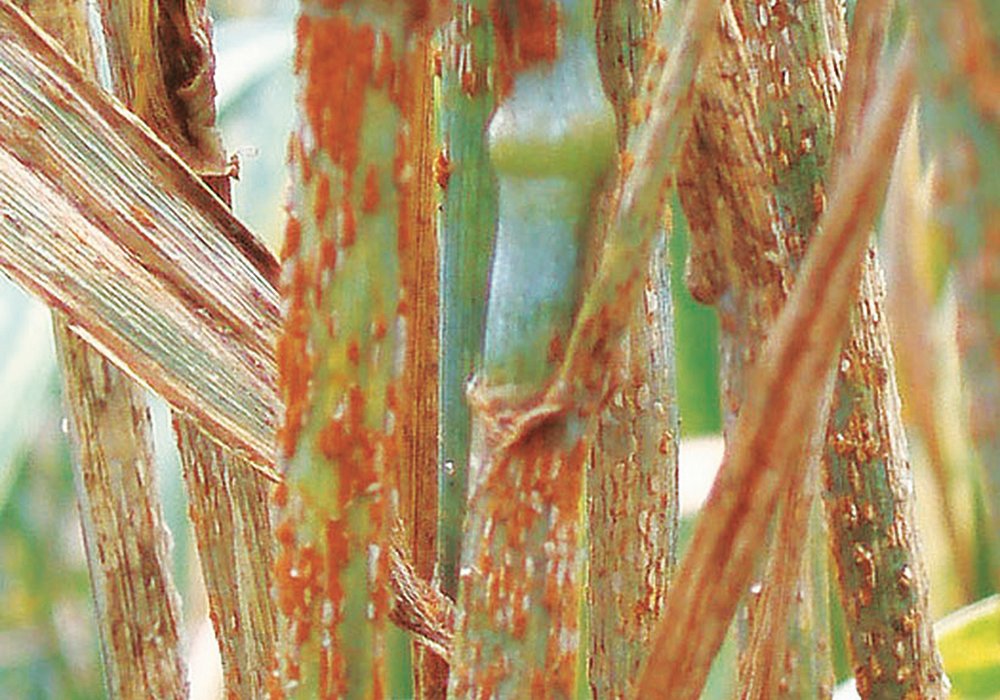Researchers warn about plant pandemics

Glacier FarmMedia – The world is preoccupied with the COVID-19 pandemic, but plant pandemics are also a threat.
Sixteen researchers published a paper in May urging action to prevent the spread of plant pathogens such as rust, which affects a variety of plants, and Panama disease in bananas.
Why it matters: Establishing a global reporting system for plant diseases could minimize disease spread across borders and help protect food security.
McGill University professor Graham MacDonald is one of the researchers, as was Jean Ristaino, a professor from North Carolina State University who spearheaded the project.
“From my perspective, this paper represents the vision of the lead author, professor Jean Ristaino … but you can see the perspectives and experiences of the many different contributors embedded within it,” said MacDonald.
His main contribution to the paper involved agricultural trade and the risk of spreading plant diseases.
“As a geographer, I think about how potential threats to agricultural systems can manifest at different spatial scales and over time, from the global to the local level,” MacDonald said.
The paper argued that a co-ordinated global reporting mechanism could minimize the risk of spread, noting it could be similar to ProMED, which reports globally on infectious disease outbreaks and initially reported the COVID-19 outbreak in Wuhan, China.
The paper also calls for more plant pathogen surveillance and monitoring systems, more active monitoring and more complete strategies to address plant diseases, among other suggestions. While some diseases are monitored, such as wheat rust and late blight, many others are not.
“Climate change is also exacerbating the situation, since it can affect the spread and distribution of plant diseases,” MacDonald said.
If a plant pandemic begins, it could be just as detrimental as COVID-19 by causing food shortages.
“We discuss how emerging plant diseases and pest outbreaks are a concern in terms of global food security.… This is of course in addition to the livelihoods of farmers that rely on them,” MacDonald said.
“From a Canadian perspective, our farmers are of course major global exporters of wheat, canola and pulses, among others. This goes to show how agriculture and food supplies are interconnected across borders, and we’re all in this together.”
Kelly Turkington, a plant pathologist with Agriculture Canada in Lacombe, Alta., said Western Canada is not immune from plant disease epidemics.
“You have to look at the particular disease and crop that you’re facing,” Turkington said.
“You may have issues that are present in other countries, but we don’t have them here. But they can be easily brought here.”
Canadians may have a false sense of security in thinking a plant disease outbreak elsewhere won’t arrive here.
“It’s only when we actually have the issue on farm, and at a level that’s causing us economic harm, that we all of a sudden say, ‘whoa, we better do something about this’,” he said.
Staying informed and maintaining good crop rotations are among the protections for Canadian farmers.
“I think it’s important for the farmer to understand the enemies they are facing, so that they can … utilize the right strategies, at the right time, at the right rate, using the right technology and so on.”
Melissa Bezan is a reporter with The Western Producer.
Source: Farmtario.com

